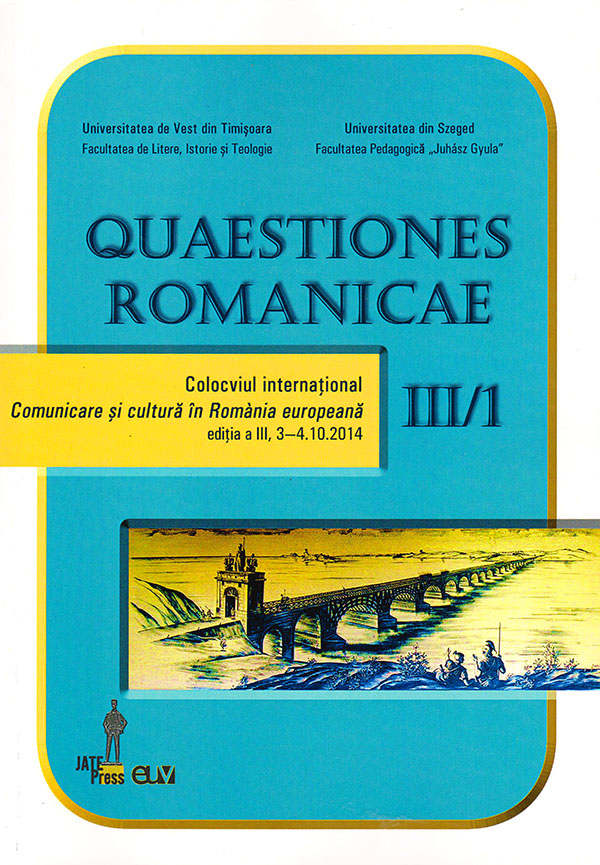Aromatele, limbile romanice şi etimologia populară
Abstract: (Aromatics, Romance Languages and Folk Etymology) Our paper aims at inquiring into several aromatic herbs’ romanian names issues, trying to highlight possible tendencies preponderant for the Romance languages, considered separately or in justified groups. It is well known that, as far as herbs names are concerned, especially the ones less known and limitedly used, linguists have found aberrant forms which observe but seldom the rules leading from the Latin form to the Romance one. This is also the case of the aromatic herbs, for which fully functions contamination (double or even triple), folk etymology (often justified by the characteristics of the plant), adaptation to a paradigm specific to the Romance language in which that name functions.
Keywords: aromatics, etymology, celery, lovage, thyme.
Rezumat: Lucrarea noastră îşi propune să investigheze situaţia lexicală şi etimologică a câtorva dintre numele plantelor aroma, încercând să pună în evidenţă eventuale tendinţe preponderente pentru limbile romanice, luate individual sau în grupuri motivate. Este bine cunoscut faptul că, în ceea ce priveşte numele de plante, mai ales cele mai puţin cunoscute şi cu o folosire limitată, lingviştii găsesc forme aberante şi care nu respectă decât rar regulile care conduc de la forma latinească la cea romanică. Este şi cazul plantelor aromate, pentru care funcţionează din plin contaminarea (dublă sau chiar triplă), etimologia populară (motivată adesea de caracteristicile plantei), adaptarea la o paradigmă specifică limbii romanice în care funcţionează numele respectiv.
Cuvinte-cheie: aromate, etimologie, ţelină, leuştean, cimbru.
